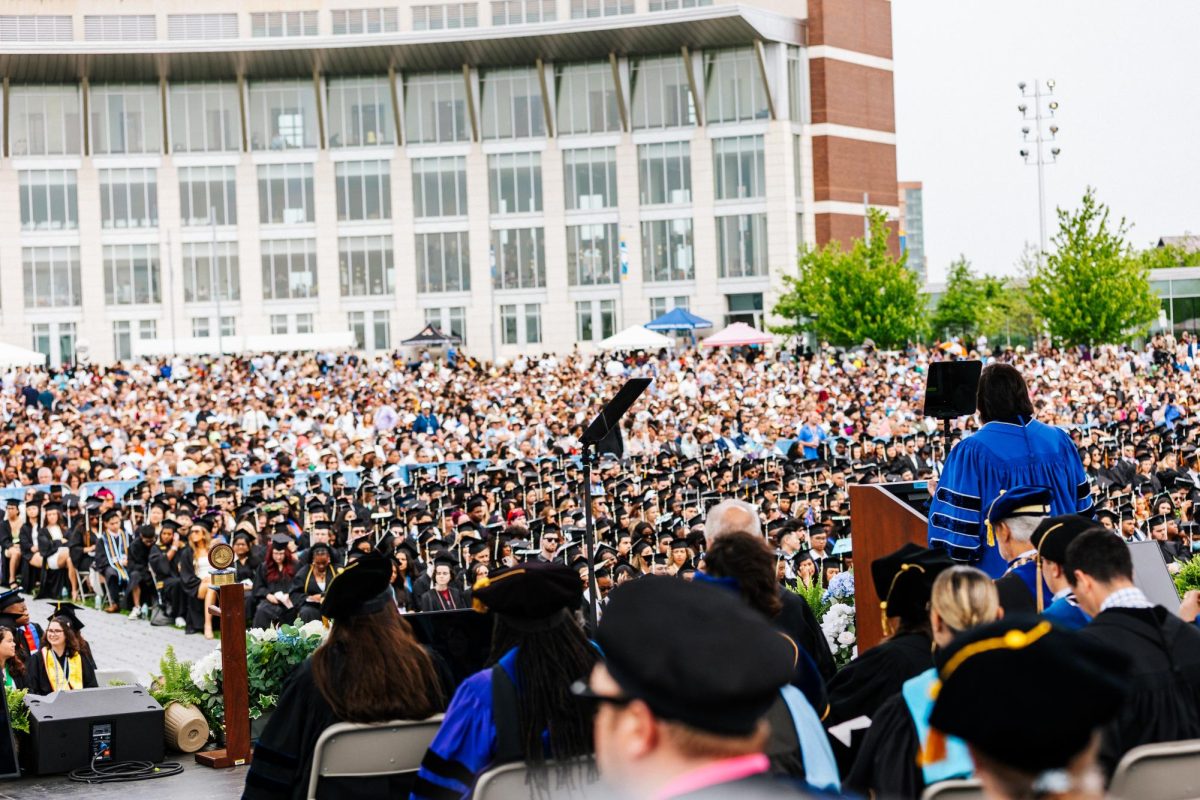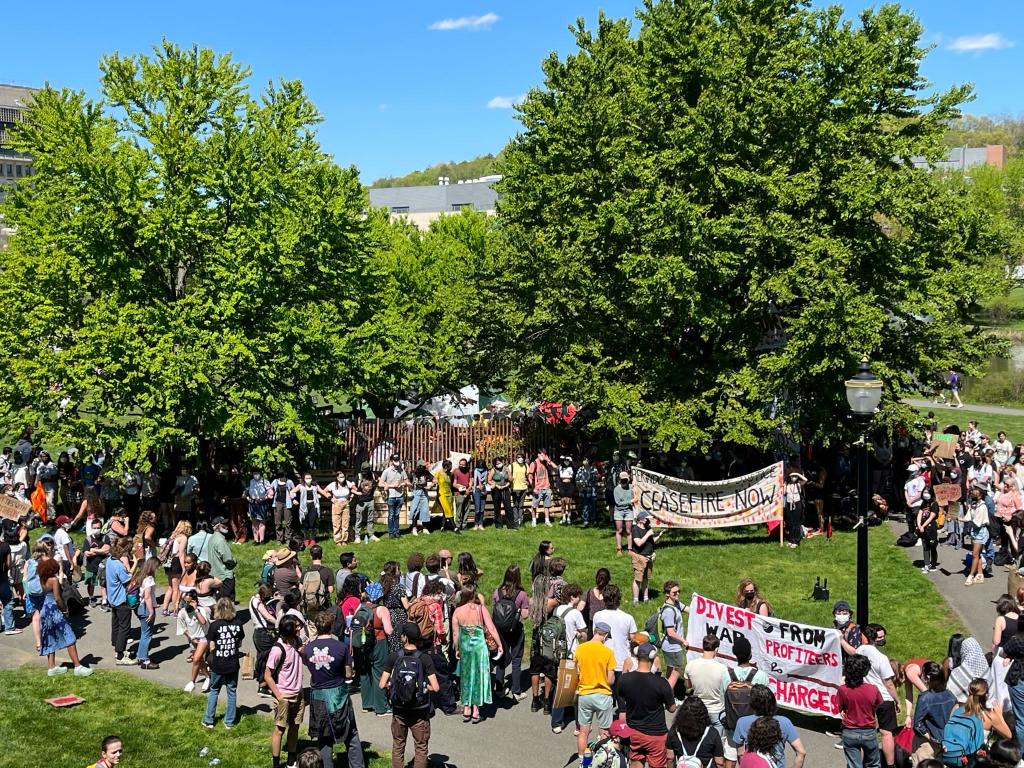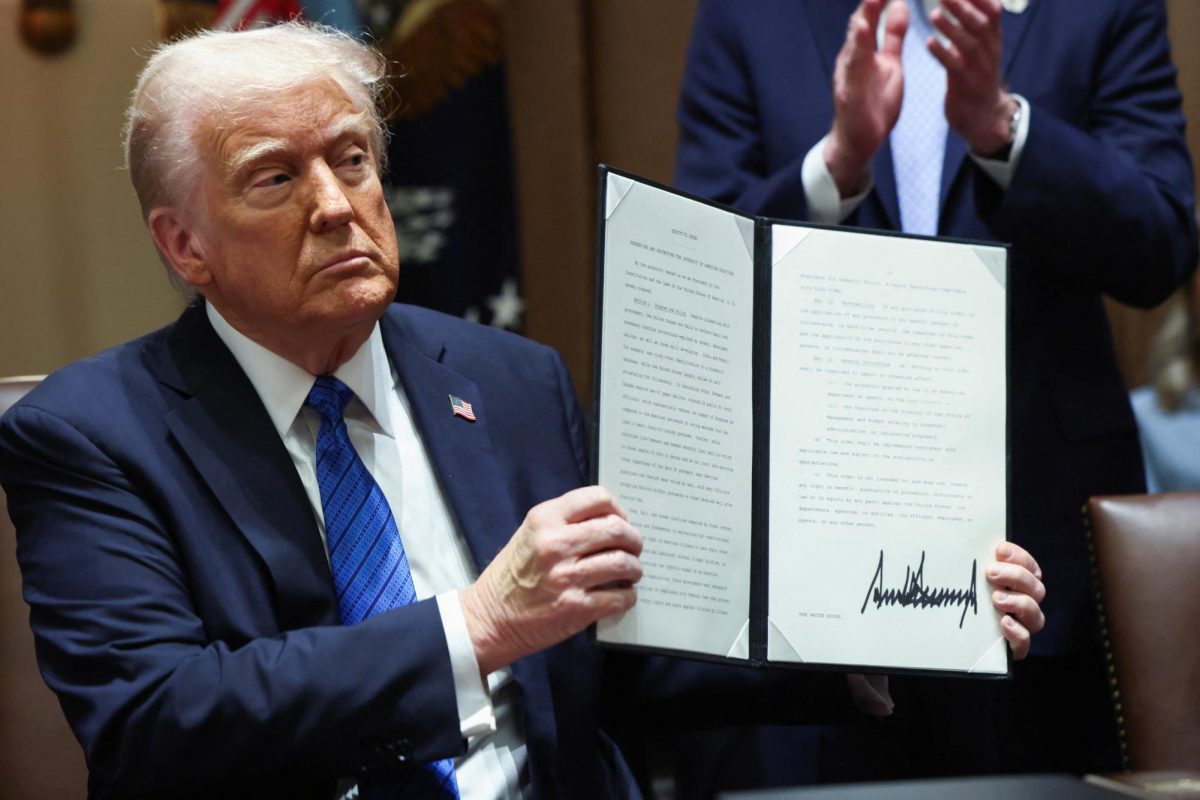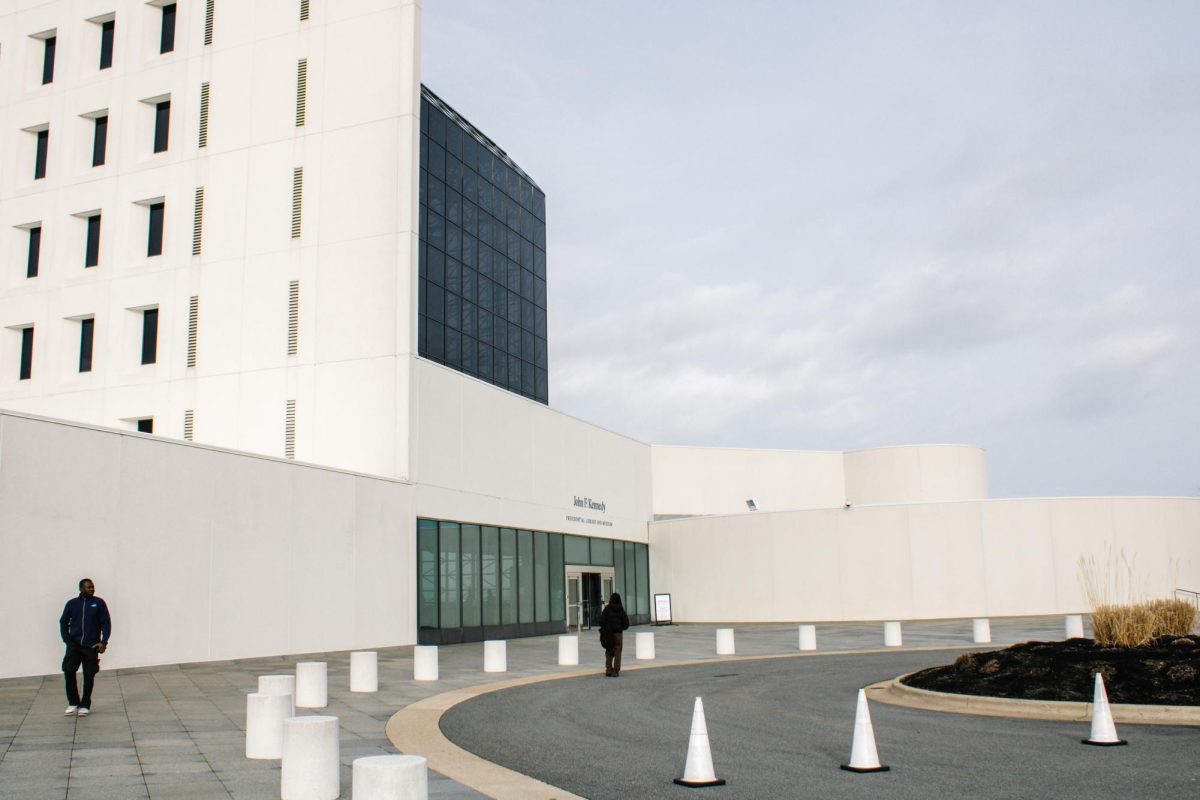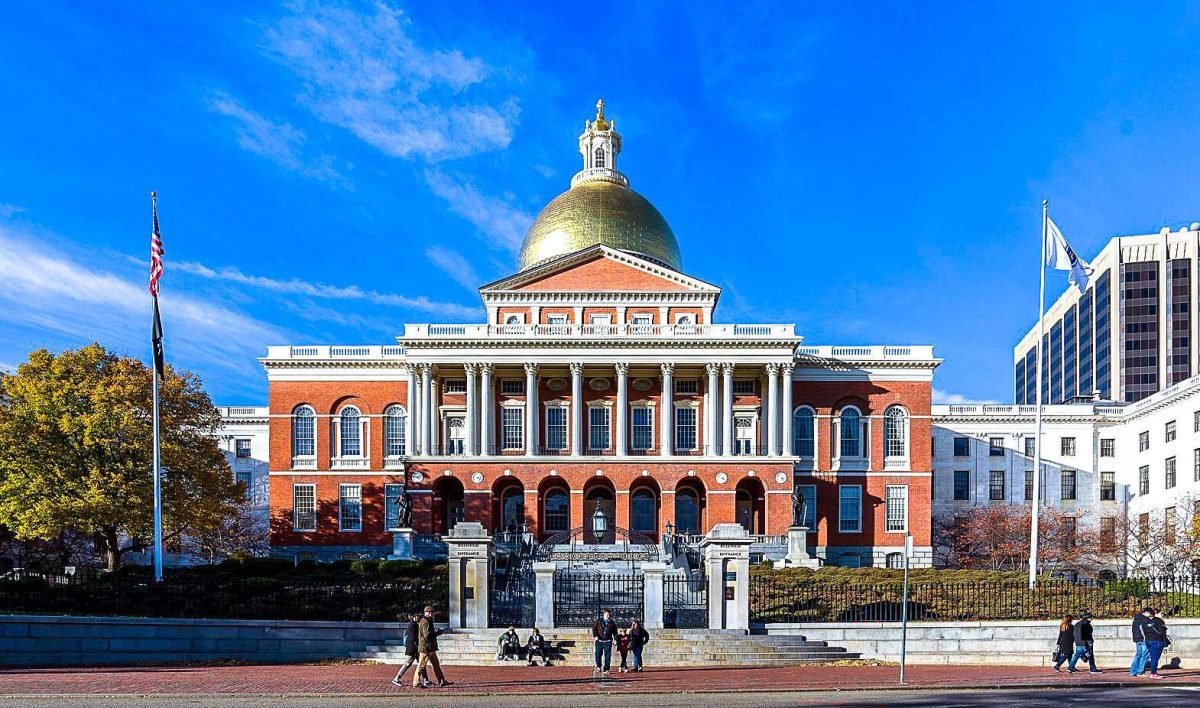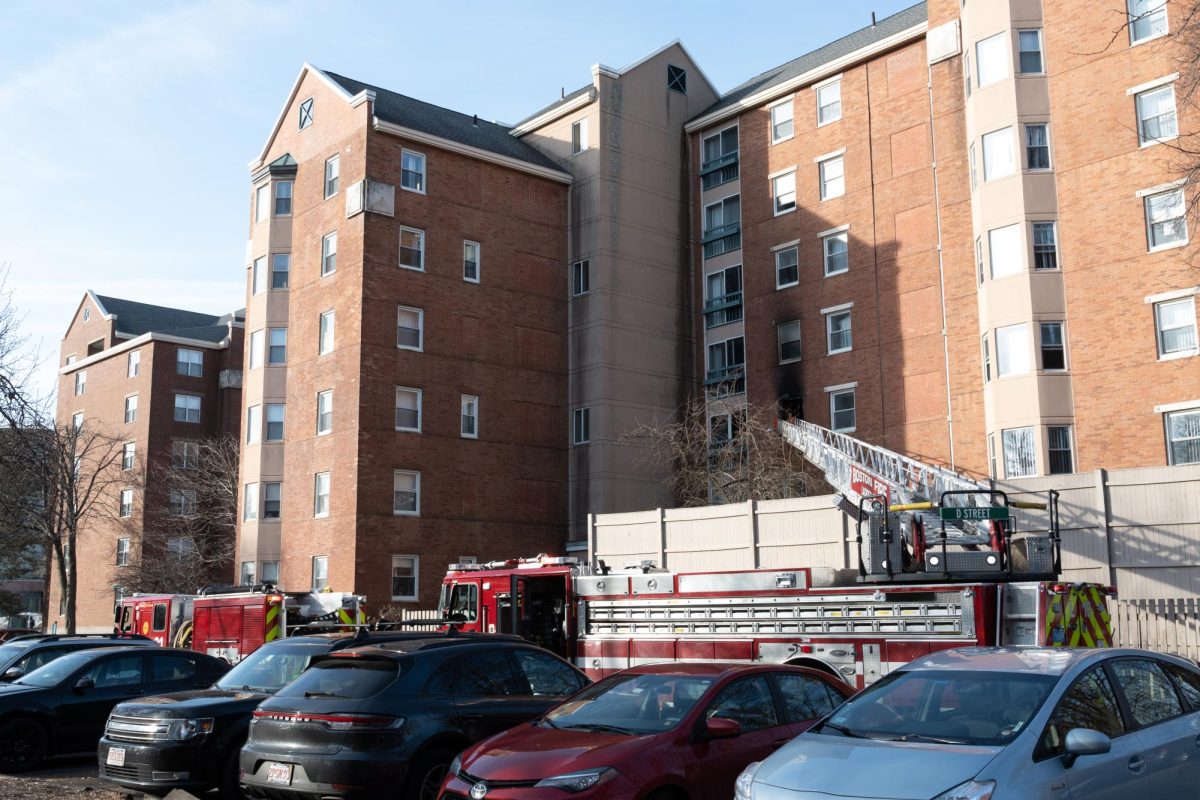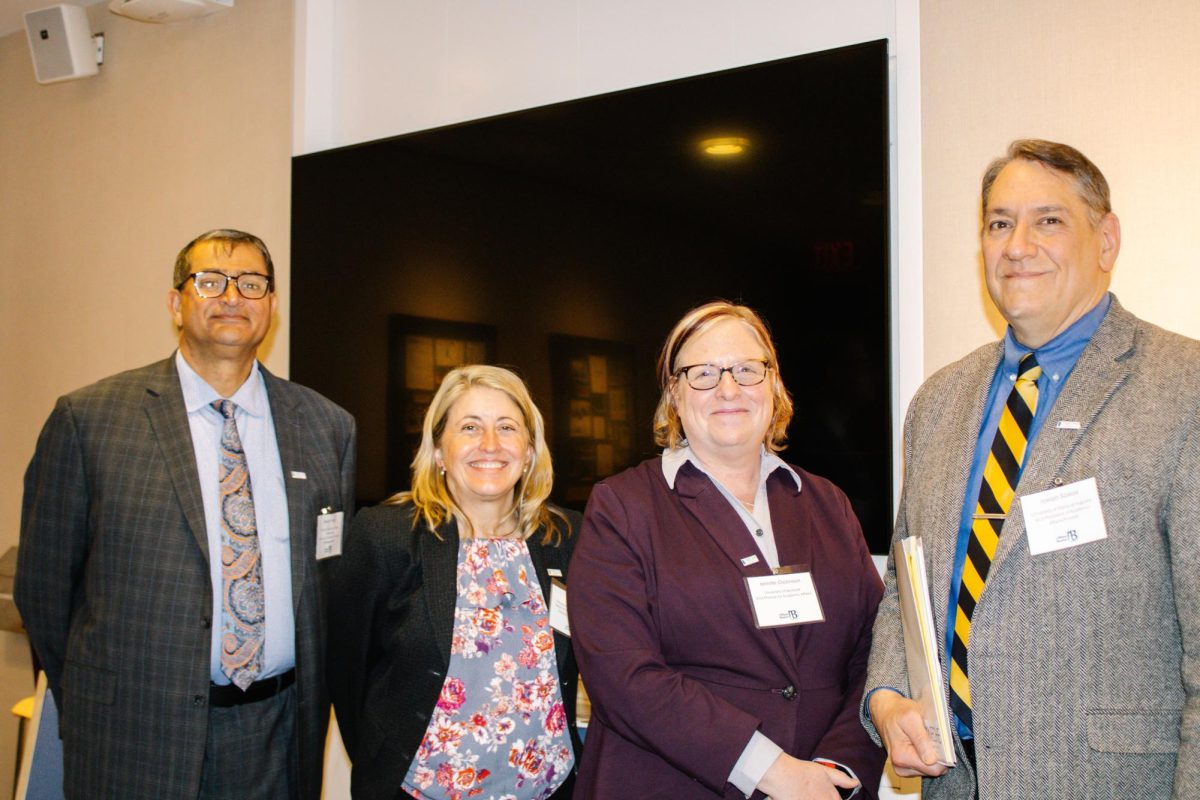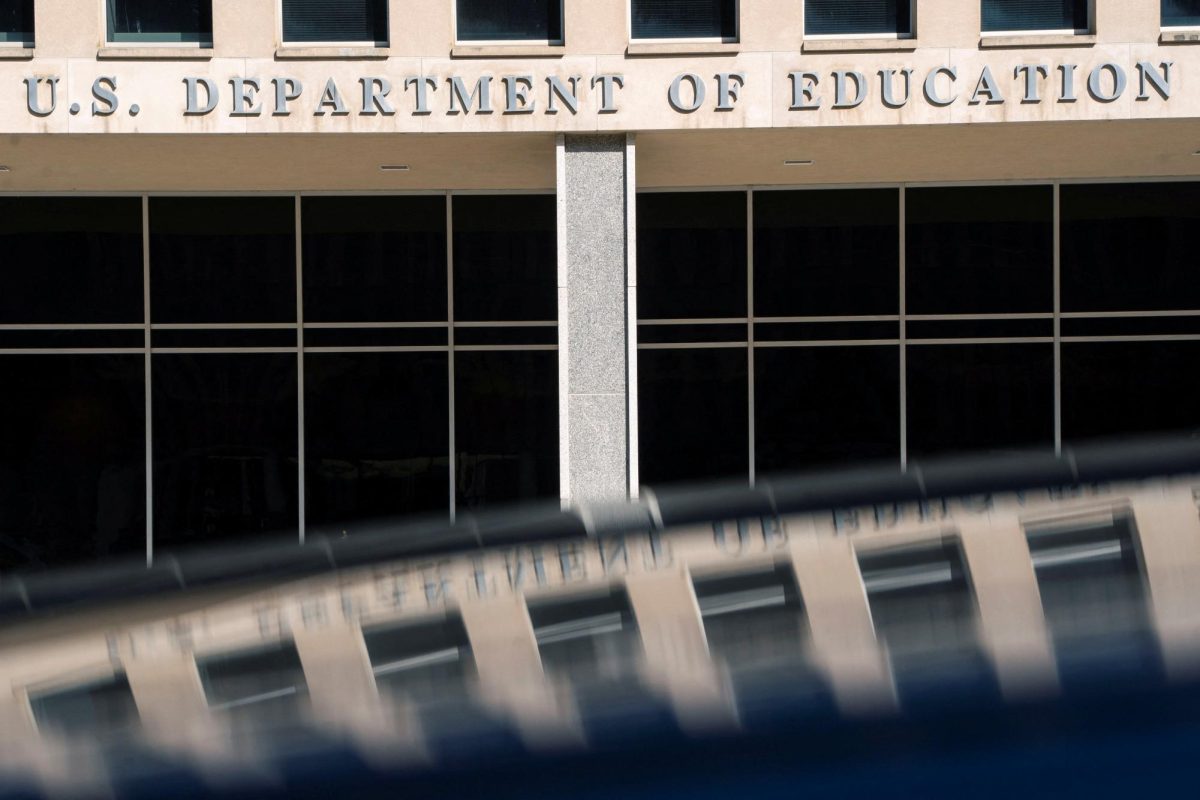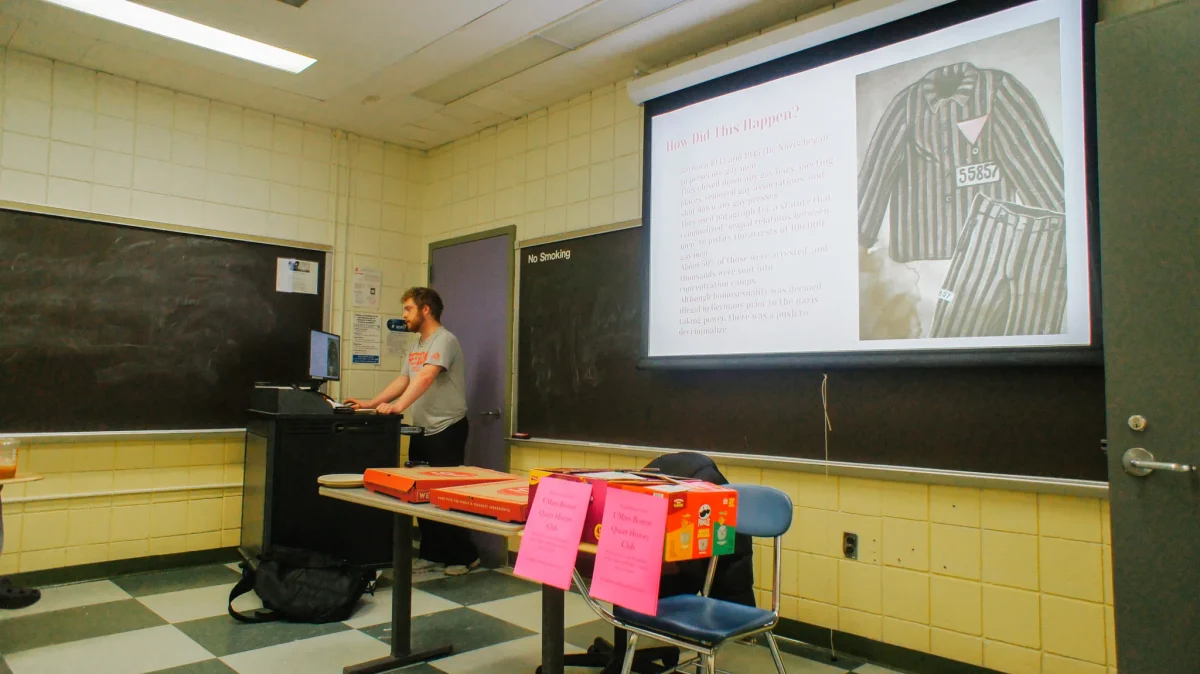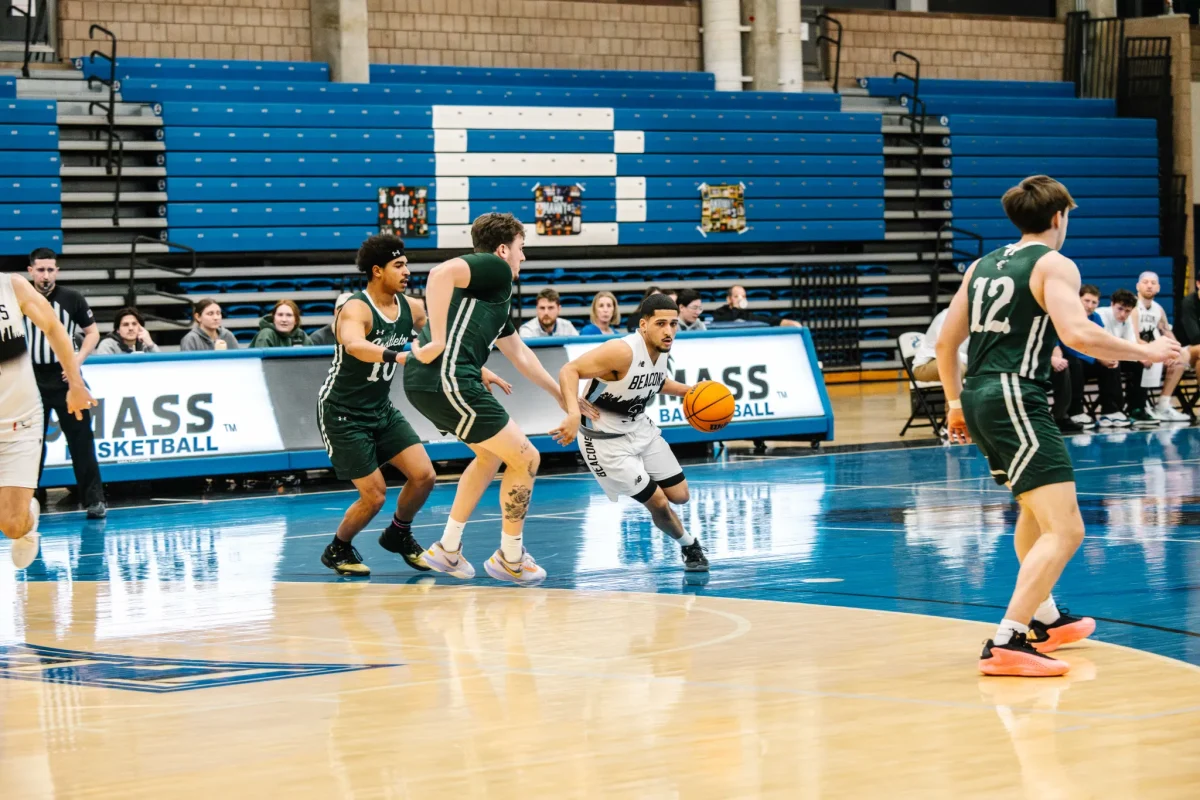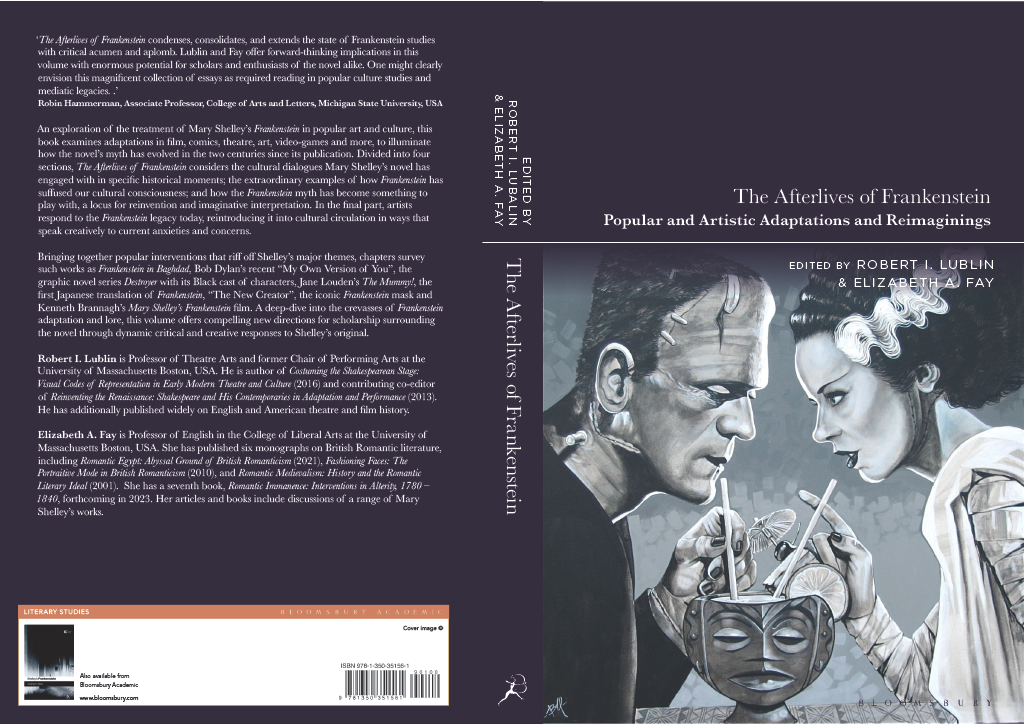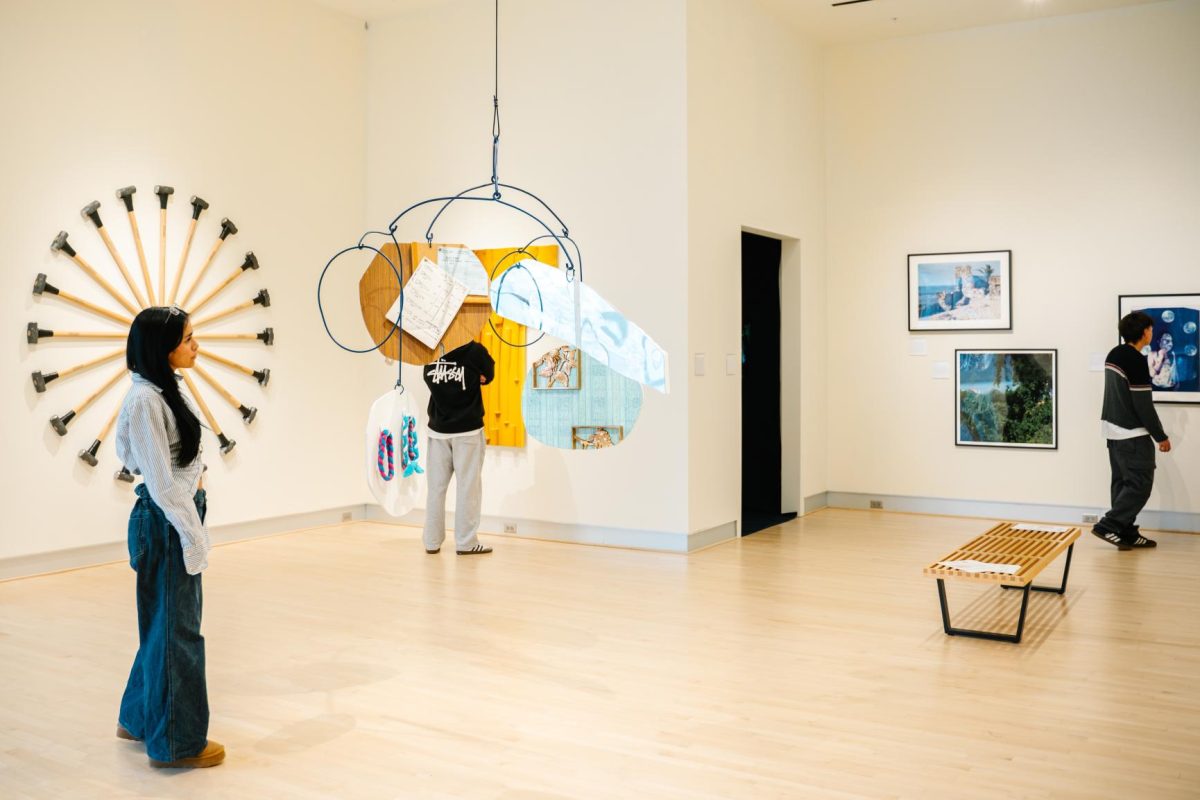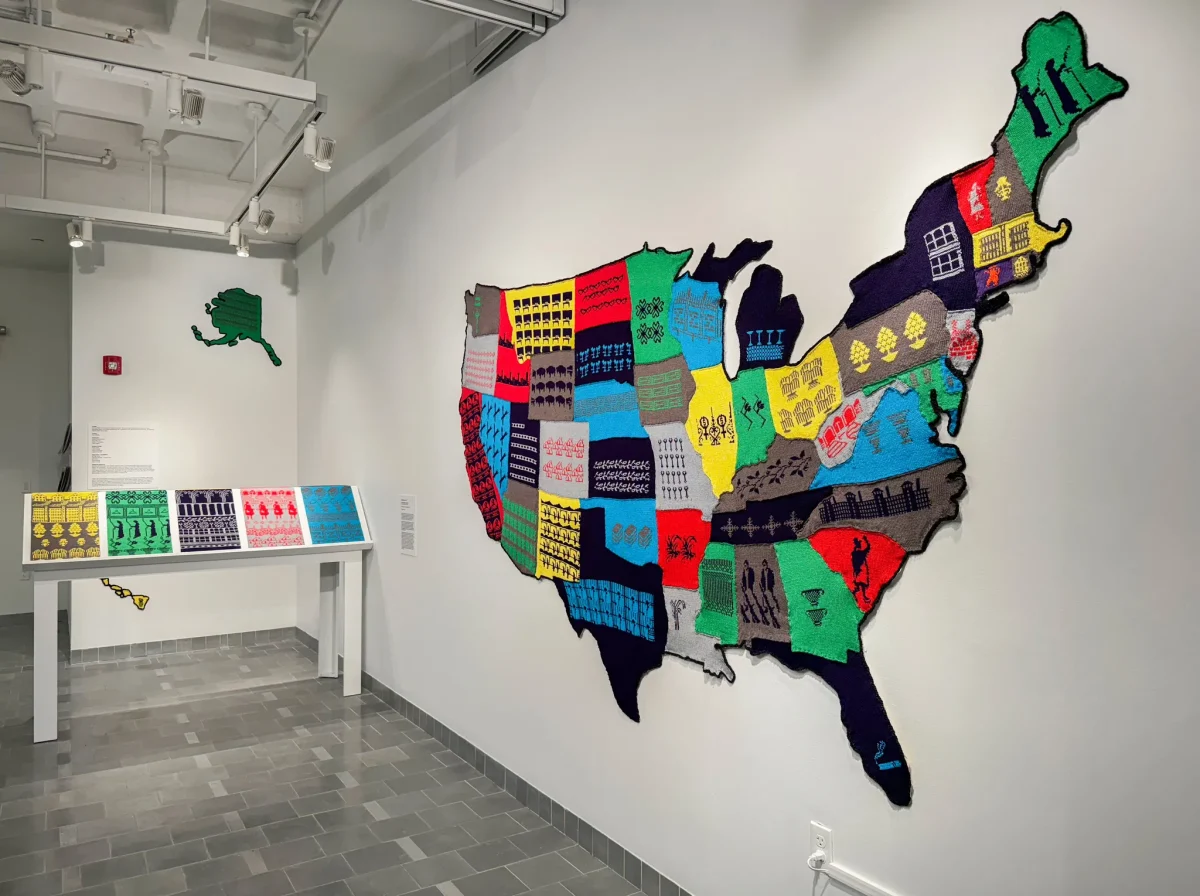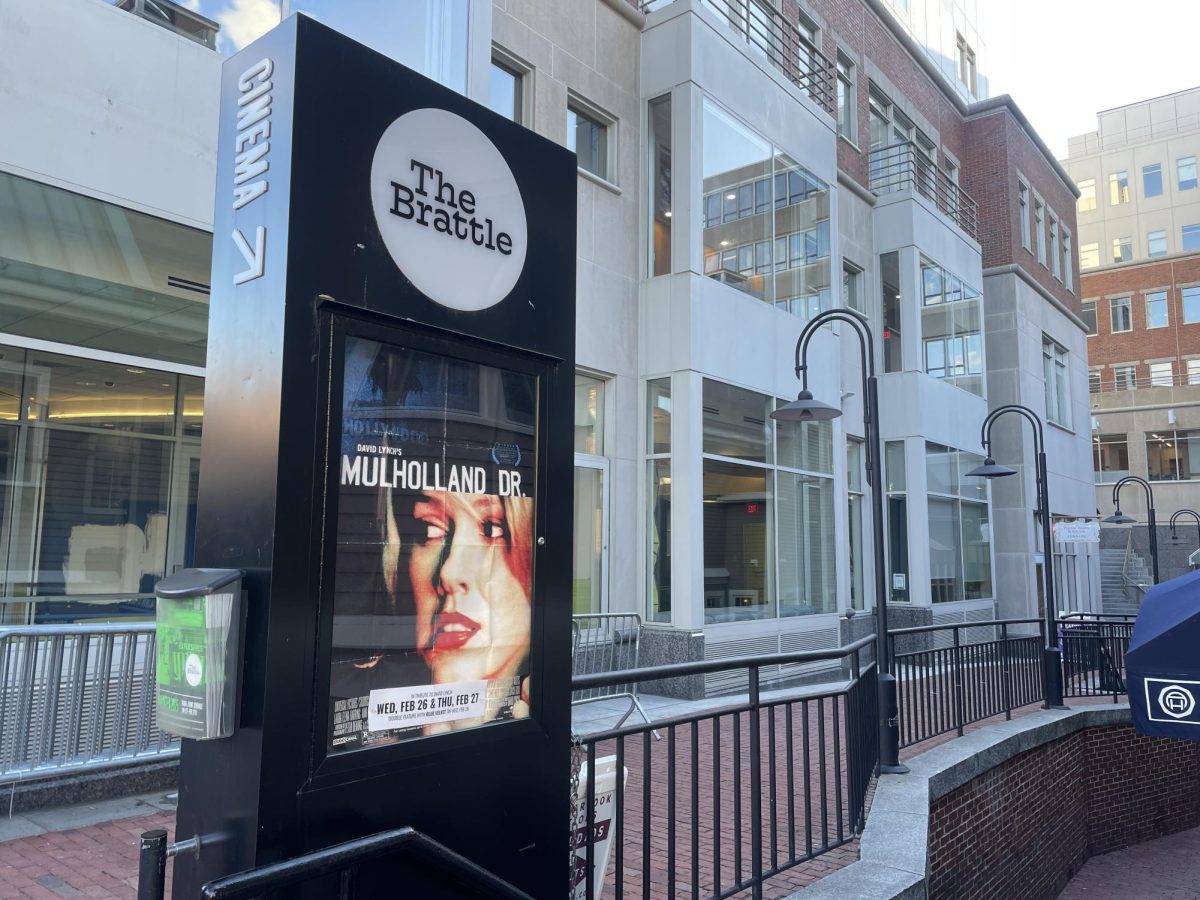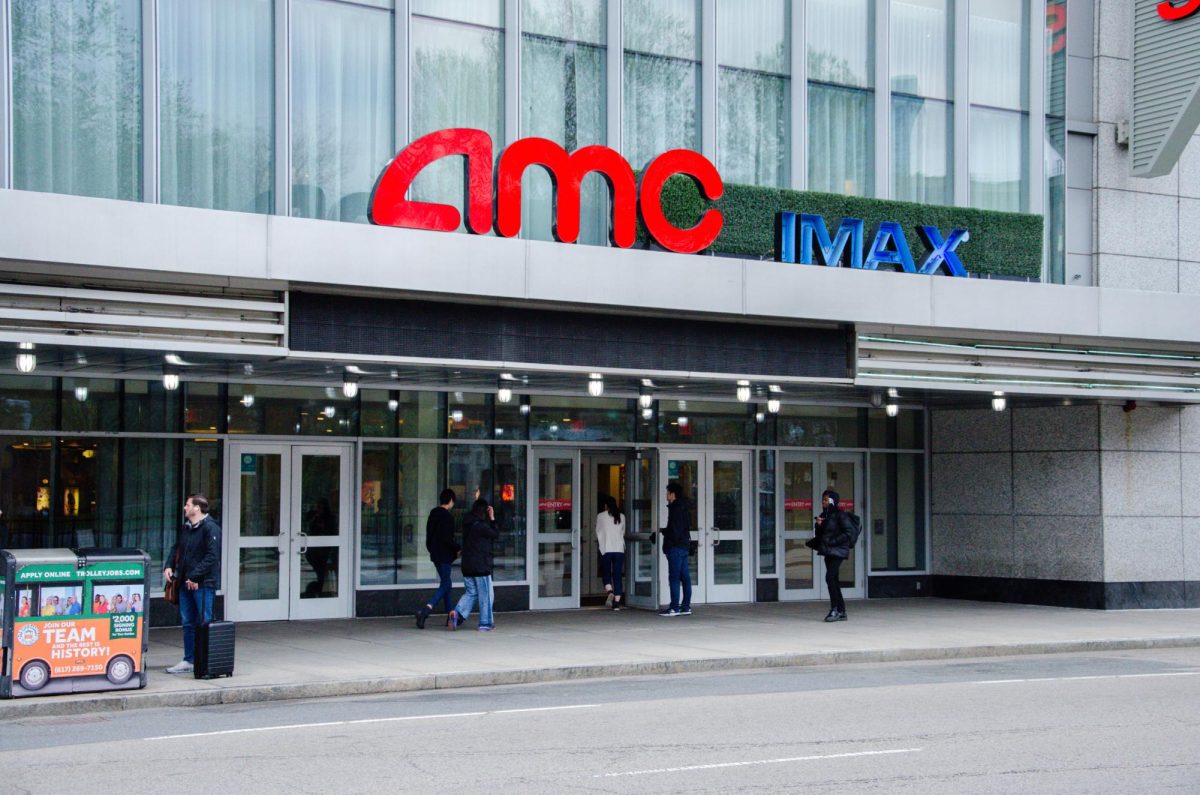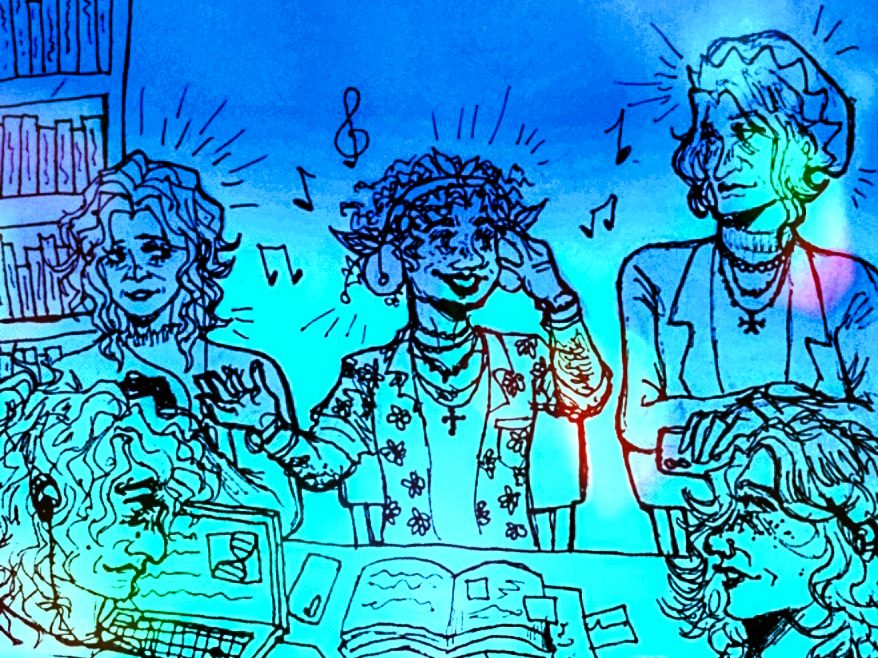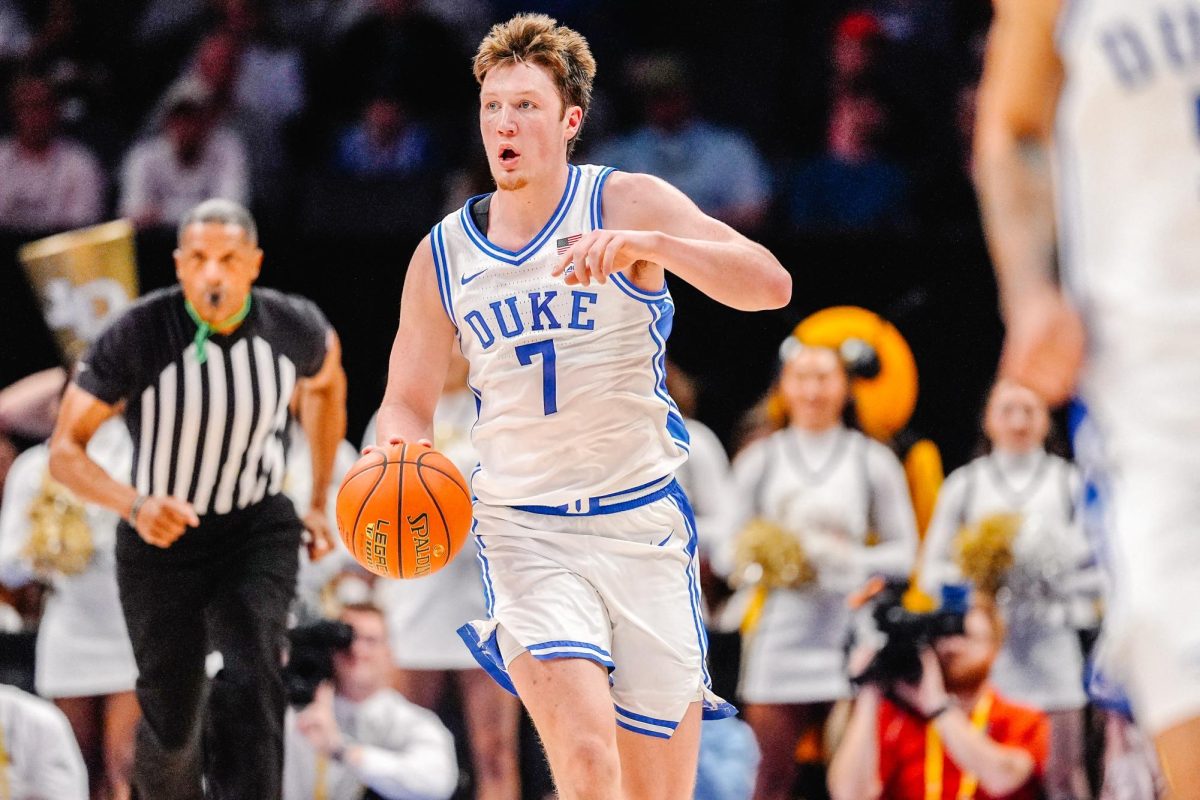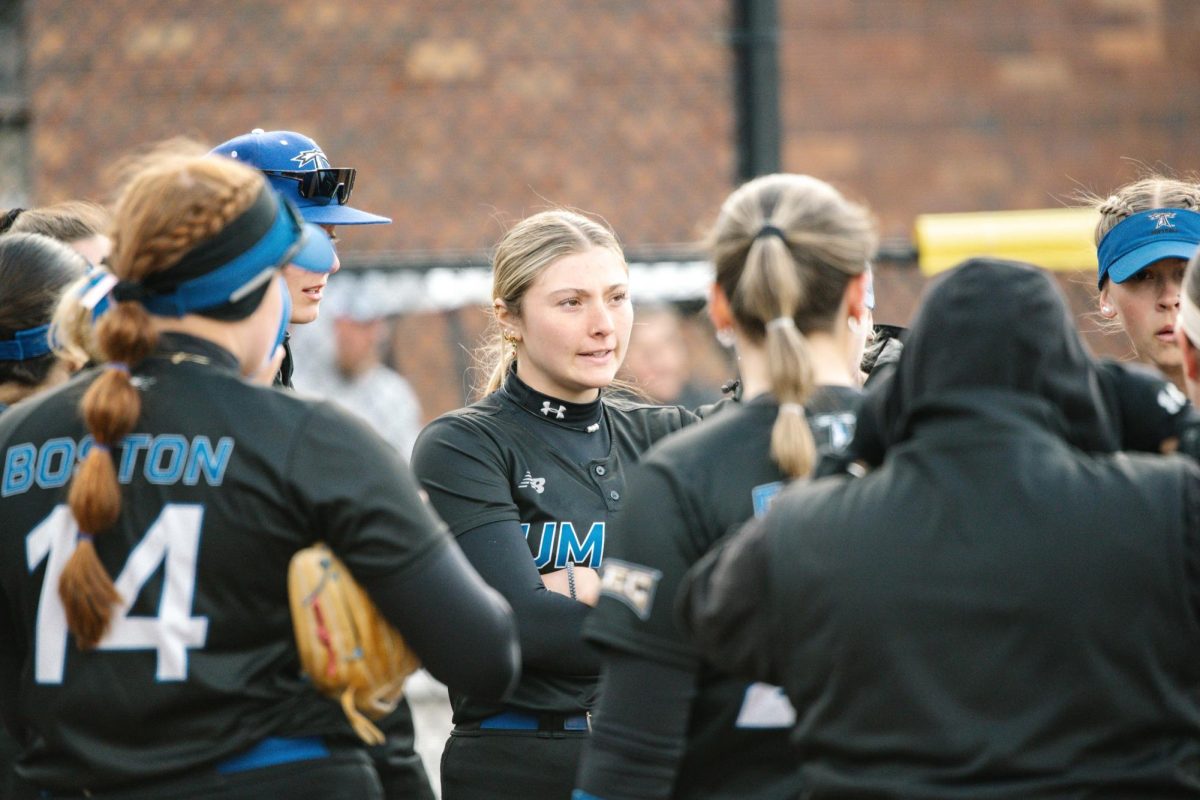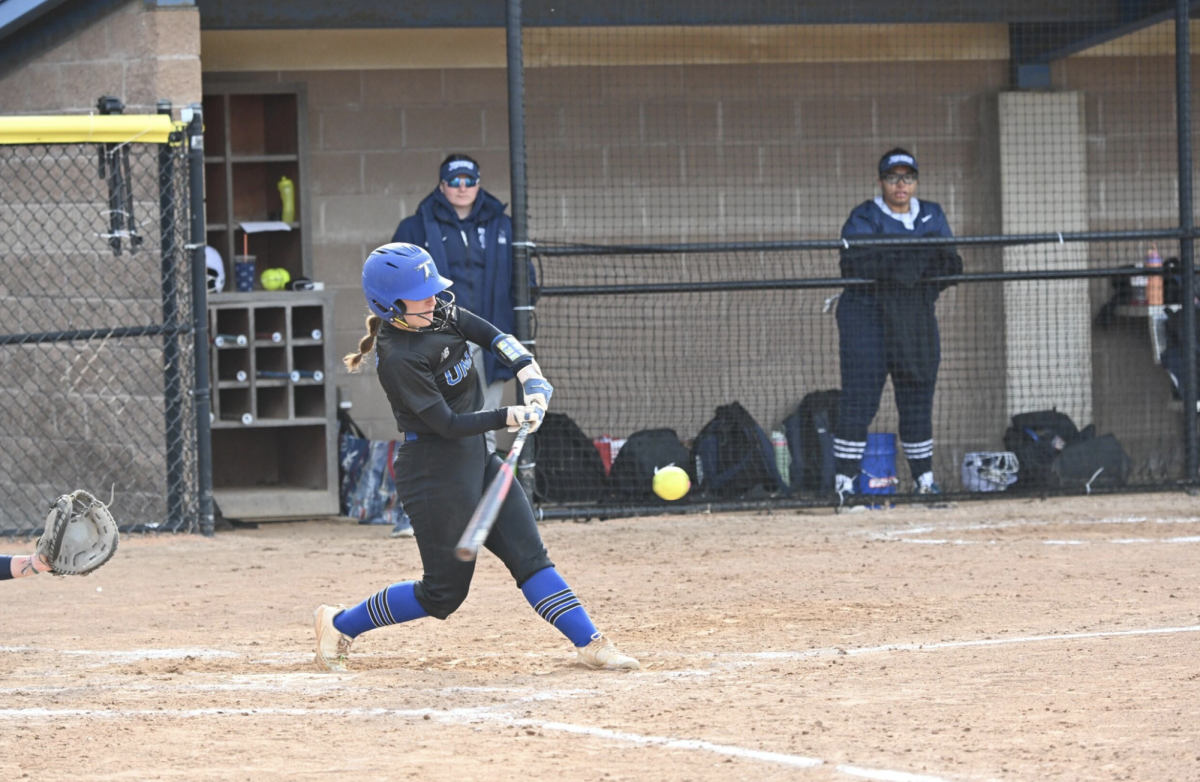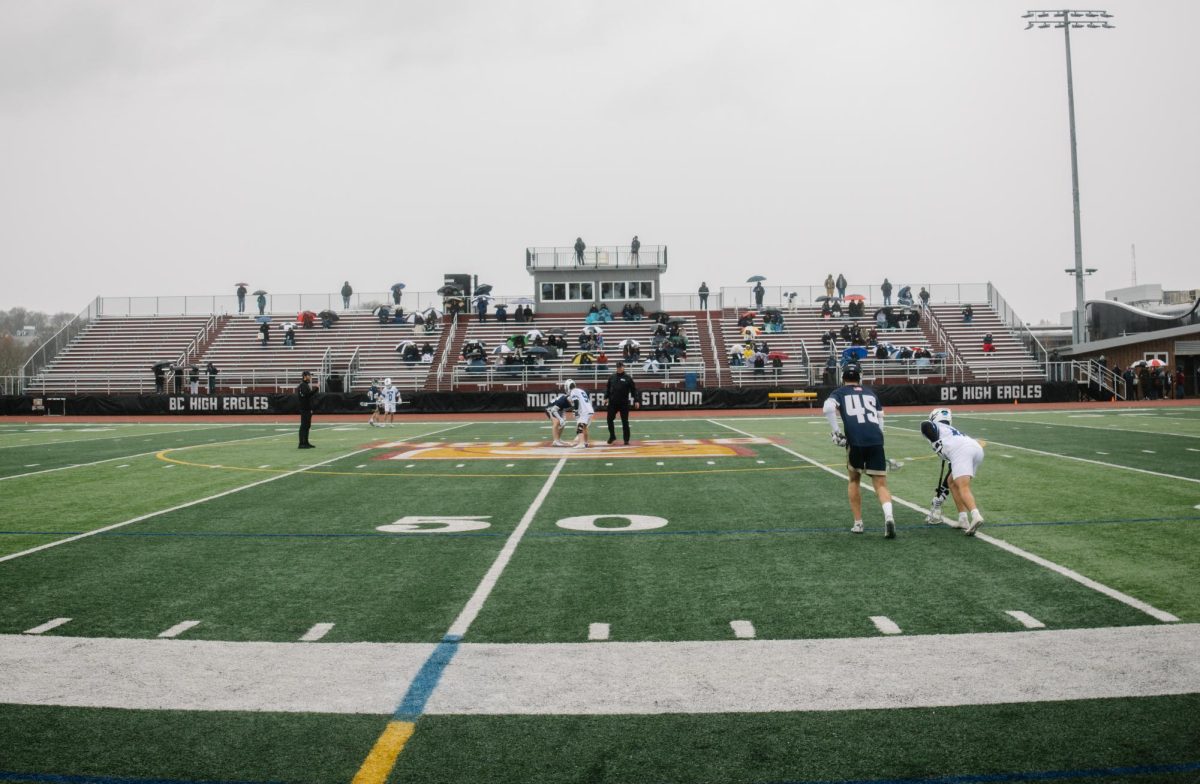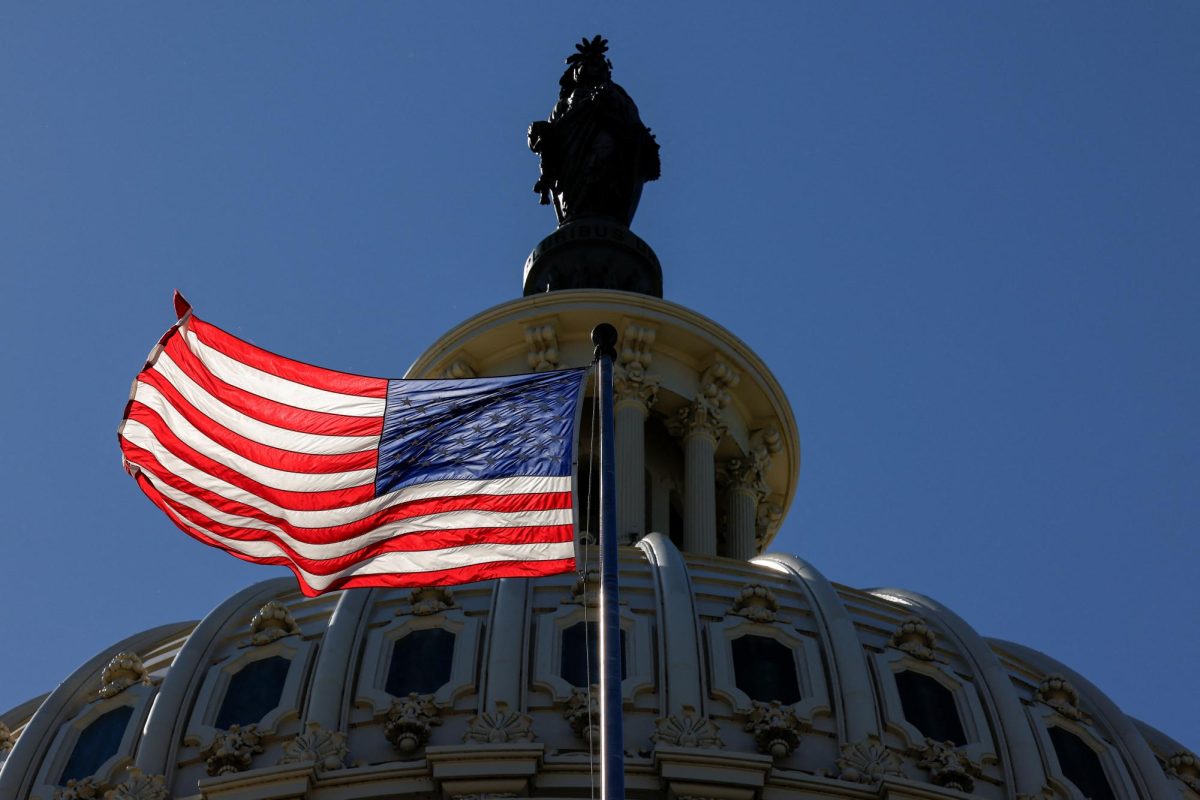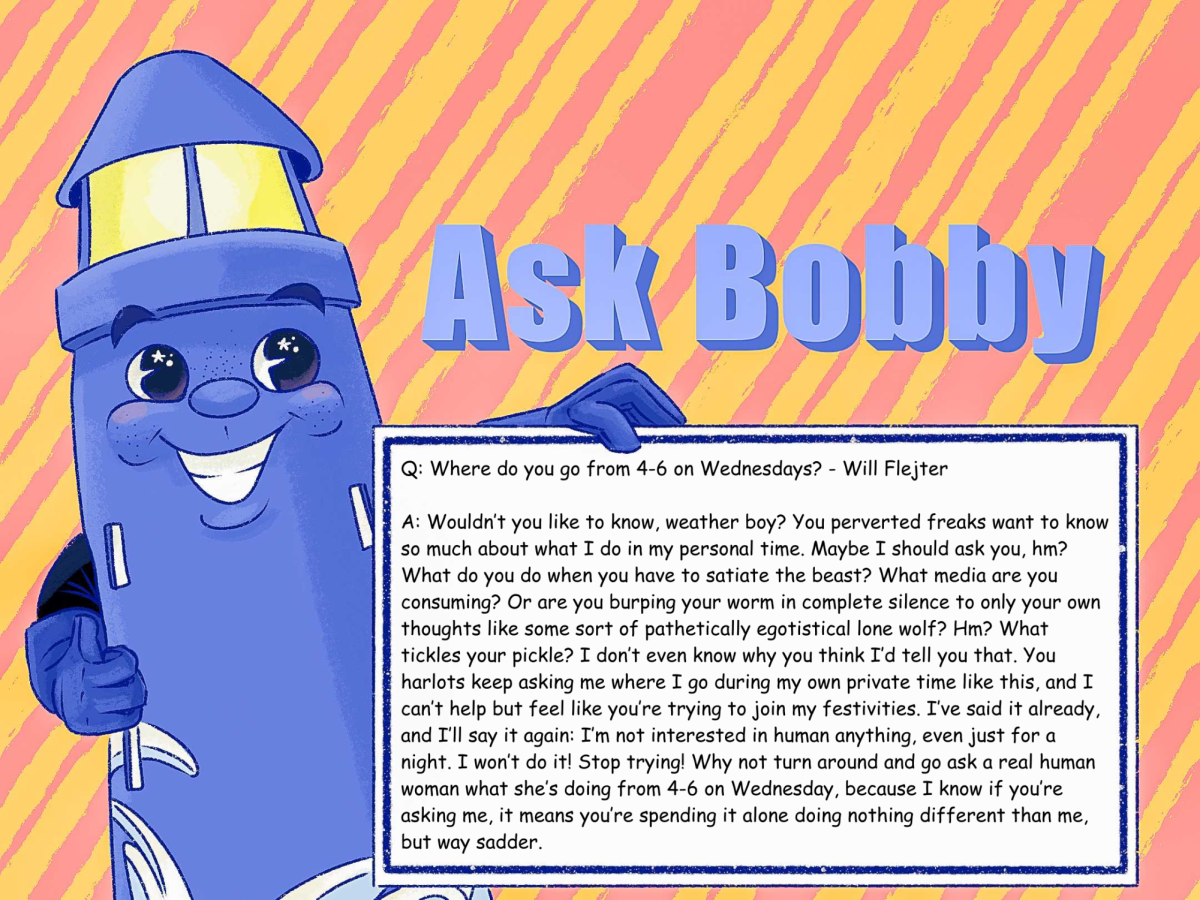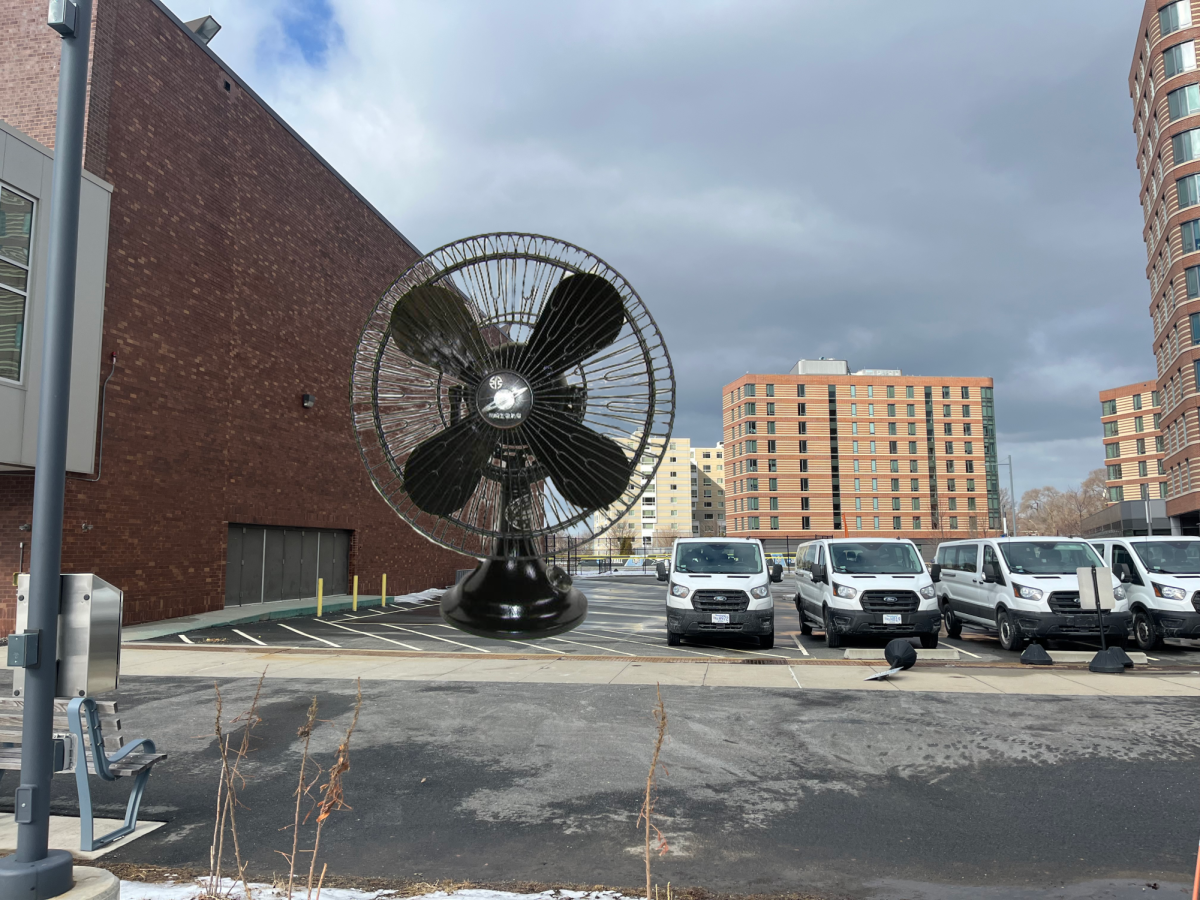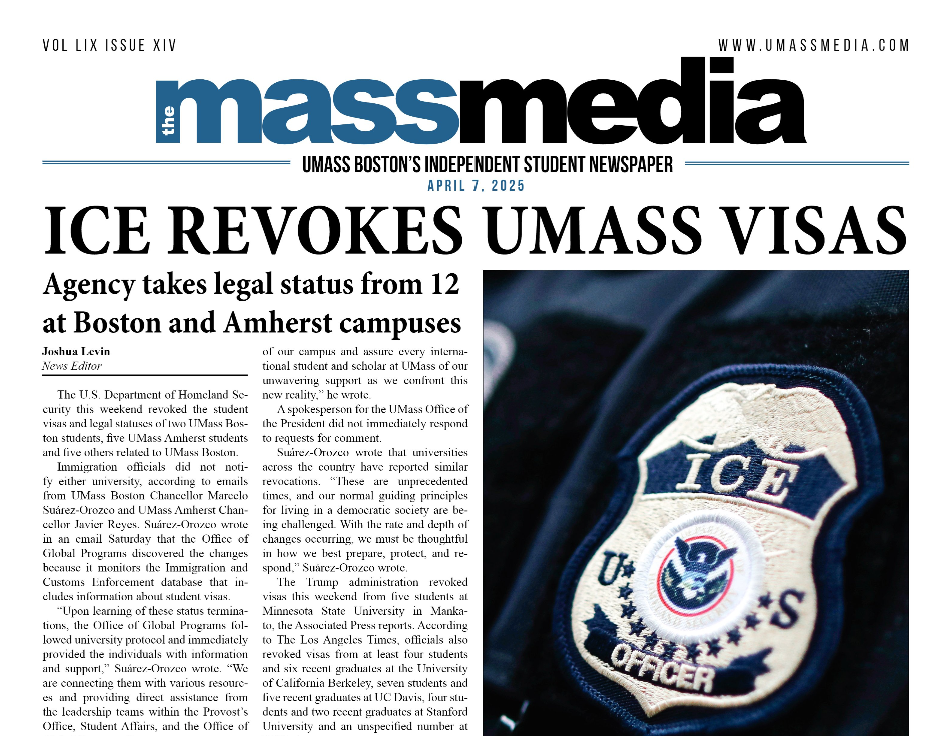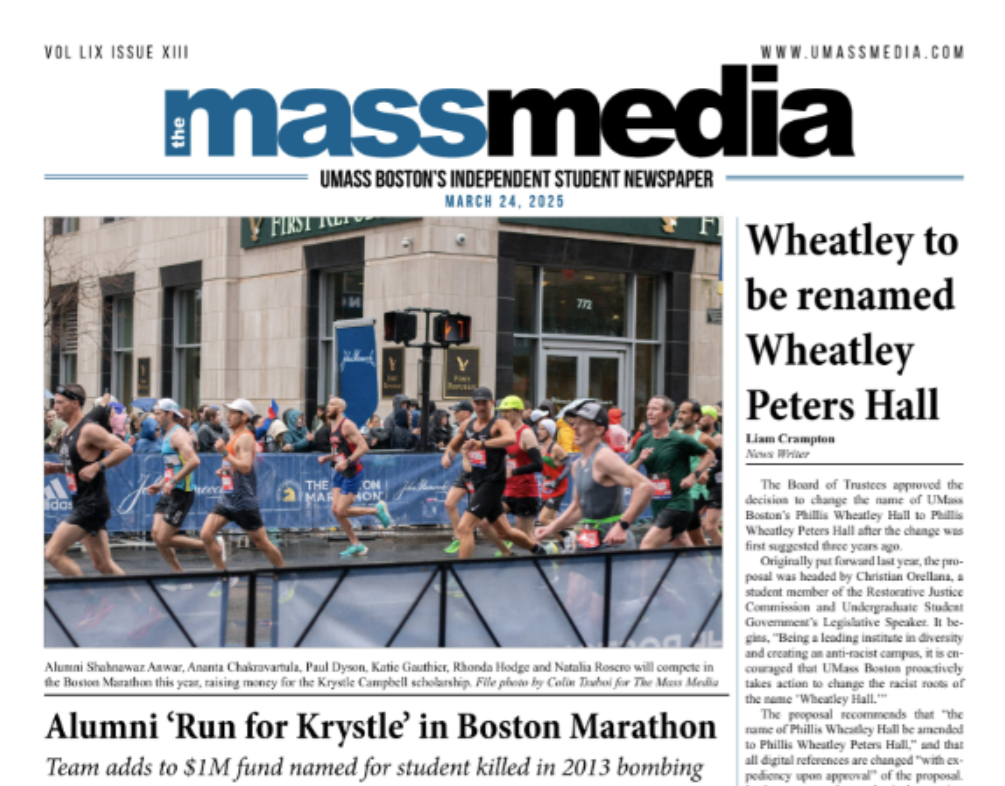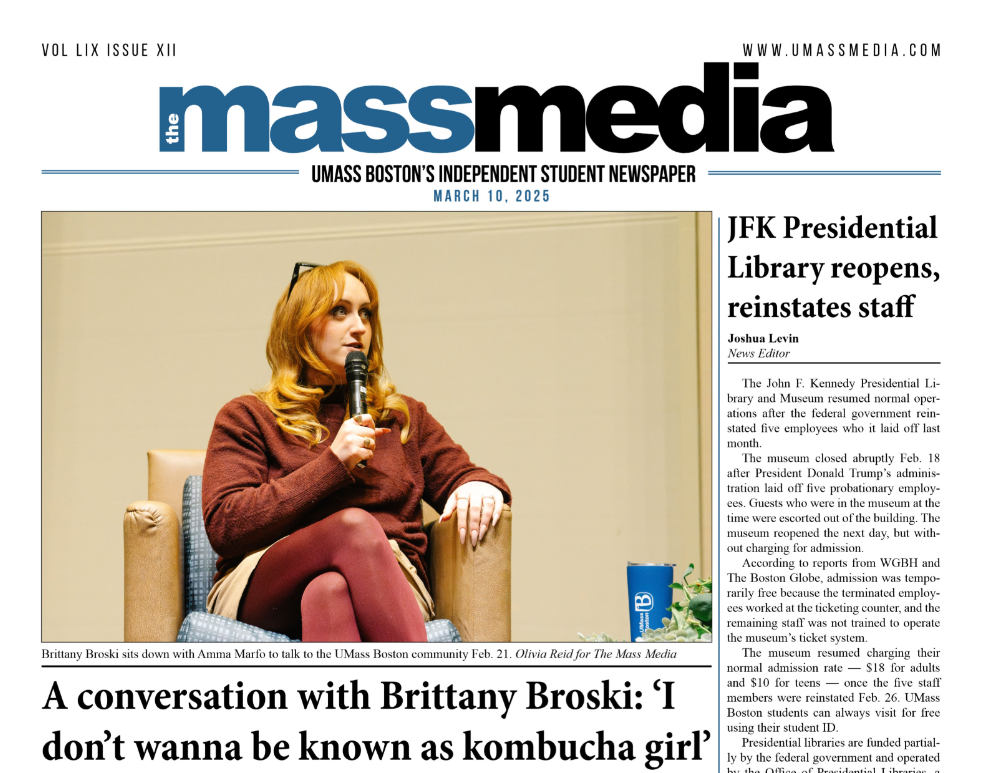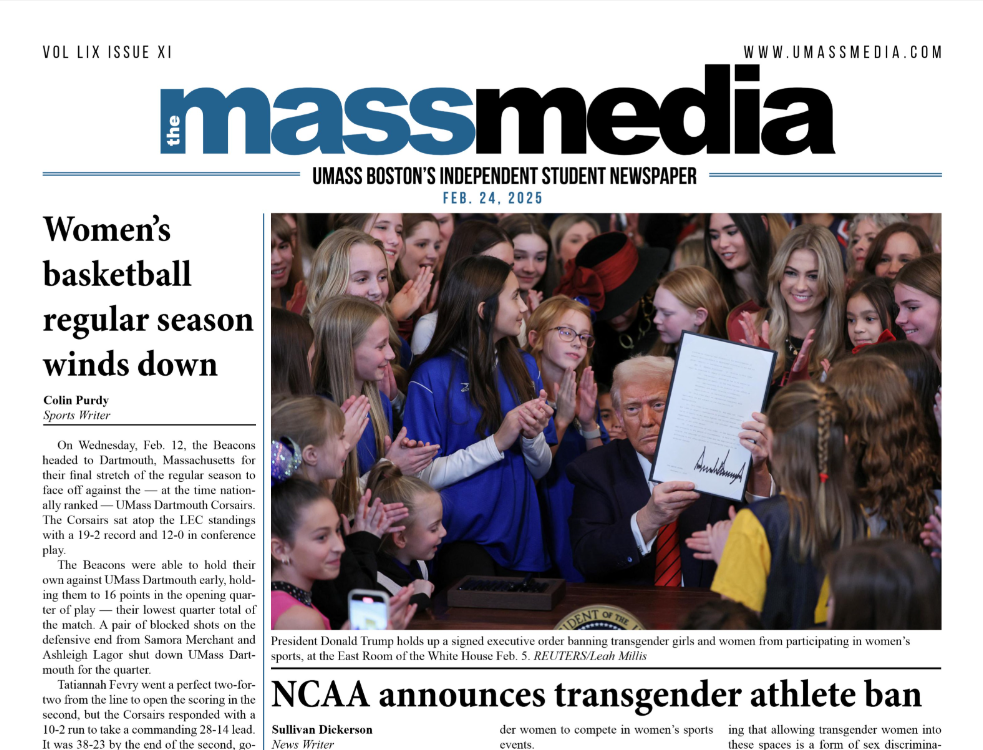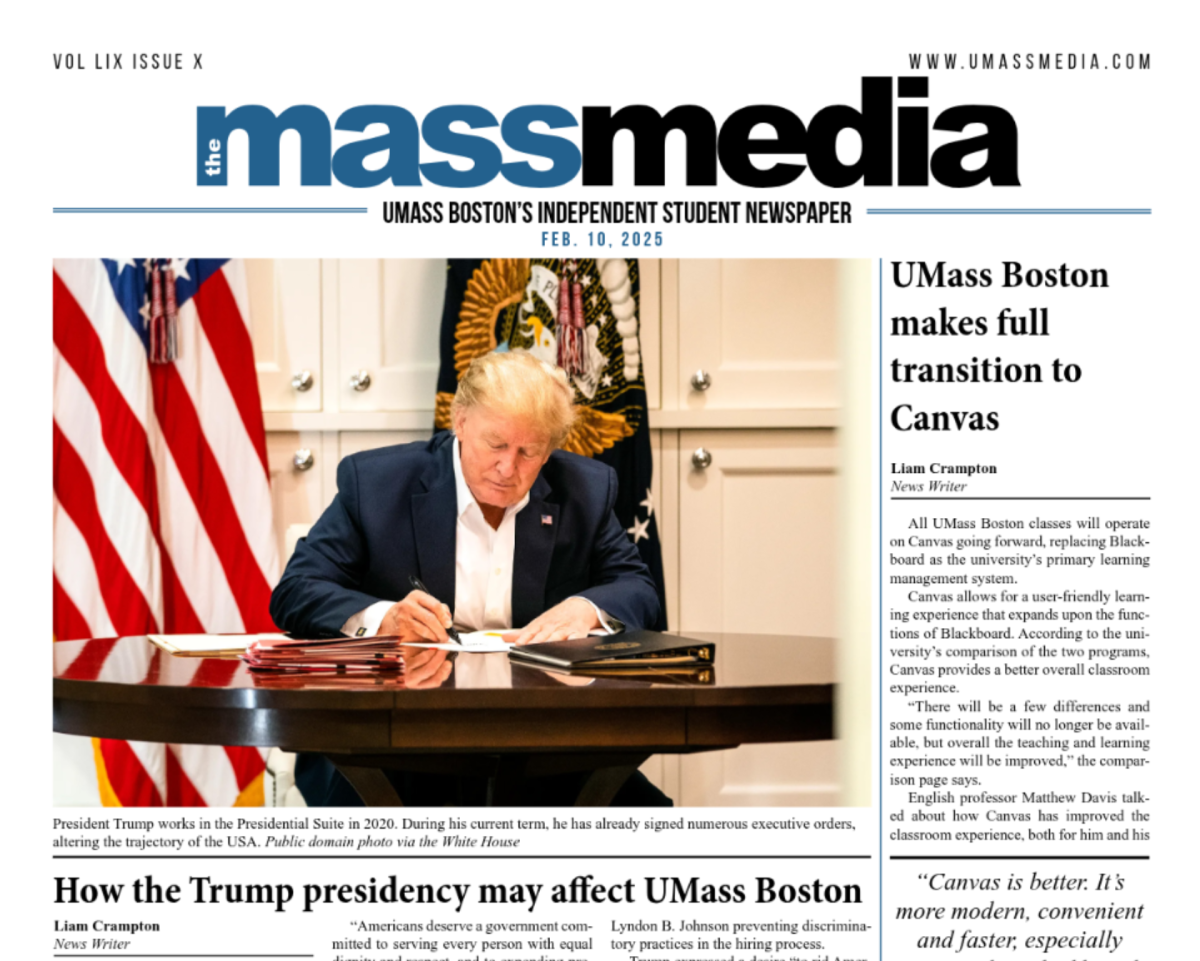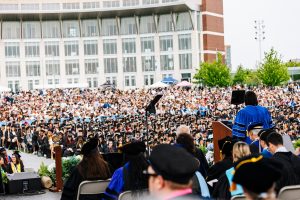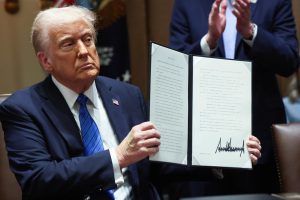Wilson Vows To Stay The Course
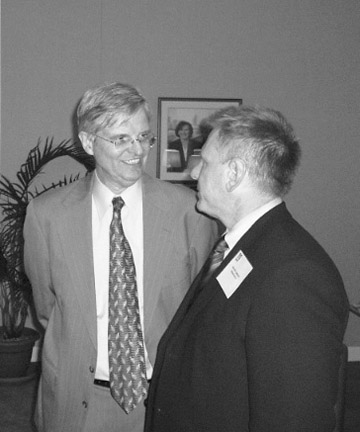
Provost Paul Fonteyn, widely seen as a contender for interim chancellor, with Associate Chancellor Kenneth Lemanski. – Photo by Gintautas Dumcius
June 10, 2004
UMass President Jack Wilson continues to meet with faculty and others in the campus community, seeking advice on who should replace Chancellor Jo Ann Gora once she leaves in August to assume the Ball State University presidency, and vowing to maintain the direction set by the university.
“Clearly President Wilson is interested in hearing from people about where we go from here,” said Robert Connelly, spokesperson for the President’s Office at One Beacon Street.
The meetings are “just the kind of things the president does typically,” he said.
Wilson is receiving hundreds of e-mails about the upcoming national search for a new chancellor, and others have written about their vision for UMass Boston, according to Connelly. A minority of them is advocating a particular candidate for interim.
Connelly said Wilson is willing to listen to all points of view, and “if there are refinements [to the direction established here], he’s open to that.”
Connelly could not confirm any of the candidates for interim, but said there are a number of people on campus who are “strong contenders” and would perform effectively as interim chancellor.
Campus speculation as to who will take over for Gora is running rampant, starting before Gora had even stepped back on Boston soil, returning from a press conference in Indiana announcing her new position.
Several senior UMass Boston administrators are widely seen as the top contenders for the position, which is expected to be filled by August. Among them are Provost Paul Fonteyn and Vice Chancellor of Student Affairs J. Keith Motley.
Dr. Motley, who was brought in by Gora last fall from Northeastern University, says he has not put his name in the running. “I would not pass up the opportunity to have a conversation about it,” he said. “Right now, I’m the vice chancellor of Student Affairs and I’m loving it.”
Motley has proved popular with the students, notably when he smoothed over what could have been a rocky move into the new Campus Center. Motley worked with concerned students to ensure their needs were met, all within several days before the move-in.
Several of Gora’s supporters appear to be backing Fonteyn. Fonteyn, hired two years ago from San Francisco State University, has declined to comment on his possible candidacy. Both Fonteyn and Wilson have a background in the sciences: Fonteyn was a professor of biology and an associate vice president for research and sponsored programs, while Wilson was once a physics professor before ascending through the ranks of UMass, from CEO of UMass Online to vice president of academic affairs, to attain the presidency.
“I think the strongest person on campus is Paul Fonteyn,” said Robert Crossley, chair of the English department, who has written a letter to Wilson with the suggestion of Fonteyn for interim. “I think we need somebody who already knows the campus.”
Fonteyn would help maintain stability on campus, and would manage the respect of a large portion of the faculty, Crossley said.
Though she said she is not familiar with what Wilson is thinking, the provost in any university is thought of as the logical choice, said Celia Moore, professor of psychology and chair of the Faculty Council.
Fonteyn, however, may still be seen by some as a controversial pick, in light of last semester’s resignation of popular dean Ismael Ramirez-Soto from the College of Public and Community Service, which put the college without a leader at the beginning of the semester. Some contend he was forced out. Many in CPCS were left angry and hurt, and efforts in the following weeks to reinstate Soto failed.
This week, Wilson meets with the Faculty Council and the Urban Mission Coordinating Committee, created by Gora and headed up by Dr. Motley.
The committee, which has been meeting frequently since its inception, recently passed a motion encouraging Wilson to appoint a person supportive of the urban mission.
“I’m very gratified that the motion I introduced, at least in some form, was passed by the committee, calling for President Wilson to appoint an interim chancellor and hopefully a permanent chancellor that is clearly supportive of the urban mission and diversity, and all that UMass Boston was created for, and should continue to be,” said Paul Watanabe, professor of political science and director of the Institute for Asian American Studies.
A portion of the motion that didn’t pass was the encouragement of an appointment of an interim chancellor of color, due to the objections of several committee members. The language was ultimately amended to say that it did not have to be limited to a person of color.
At a meeting a week after Gora’s announcement, a small “ad hoc” group of faculty sought assurances from Wilson that the direction of the campus would continue, and that campus would have input on the interim and permanent chancellors, according to faculty members who attended.
“The difficulty with the chancellor leaving at this point in time is that it makes it difficult for the campus to continue its current agenda,” said Catherine Lynde, chair of the economics department and one of several professors who organized a letter in support of Gora before she accepted the Ball State position, urging the President’s Office to take steps to keep her. It also creates difficulty and uncertainty in the upper ranks of administration, she said.
Lynde said that faculty mentioned there was a lot of concern on campus about the length of time and the lack of input into Gora’s review, which remains unfinished. Faculty also pressed for the report from the diversity task force, set up last year in response to the resignation of a popular college dean and heightened racial tensions, be released as soon as possible, whether good or bad, so the new chancellor doesn’t come in under a cloud.
“He did encourage us to let him know of any names we would know,” she said, though no names were mentioned at the meeting, which she referred to as “congenial.”
Wilson also met with senior staff the same day to allay anxieties of what was to come with Gora gone. An air of uncertainty had been hanging in the air over those last few weeks, as rumors of Gora’s candidacies at several colleges poured forth.
The following Thursday, May 20, Wilson sent a broadcast e-mail to the campus community, noting “many things seem to be heading in the right direction within the UMass system and at UMass-Boston.”
Wrote Wilson, “Surveying the landscape, we see strong freshman classes emerging throughout the system, we see bright prospects for our upcoming budget with strong increases proposed in both the House and the Senate, and as this past academic year has unfolded, we have seen a string of faculty research success stories.”
Gora, in an interview after accepting the Ball State presidency, said the challenges for the incoming permanent chancellor are highlighted in her strategic plan. “I think the challenges we have articulated in the strategic plan will continue to be important issues for the campus: improving retention and graduation rates, increasing the research profile, and raising the reputation and visibility of the campus,” she said. “Certainly the budget will continue to be a concern. Especially if the governor does try to cut taxes, as he’s indicated recently. It all depends on what the governor and the legislative agendas are. But certainly maintaining the stability of the campus is important.”
For the moment, however, the campus community’s focus remains on the position of interim. Many faculty and others recognized the importance of the position, even if it is only a temporary one.
“That’s on a lot of people’s minds,” said Moore.
Others who have served as interim offered insight into the position.
“I enjoyed my time as interim chancellor,” said David MacKenzie, current head of the UMass Building Authority and former vice chancellor of administration and finance, who stood in as interim after Chancellor Sherry Penney stepped down and before Chancellor Gora stepped up. “I’m not really pushing for the job,” he said.
MacKenzie, walking through some of the responsibilities of his tenure, said during his time as interim chancellor, he knew he had only six or seven months to do something. He sat down with the senior staff and met with the community, in an effort to make himself available. “That was the part I enjoyed the most,” he said, even if the two sides sometimes disagreed.
“Whoever gets it, I wish them luck,” he said.


